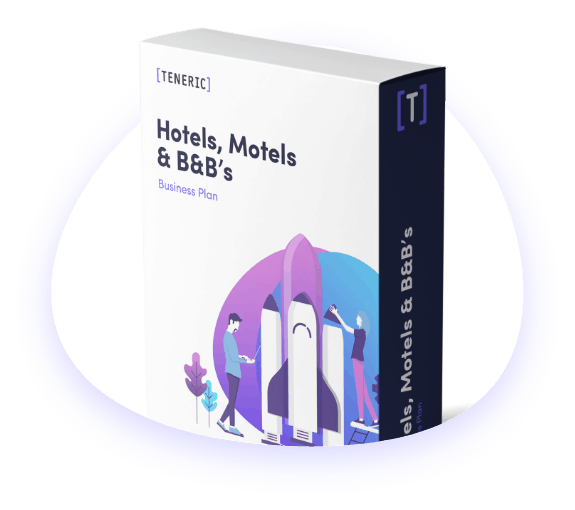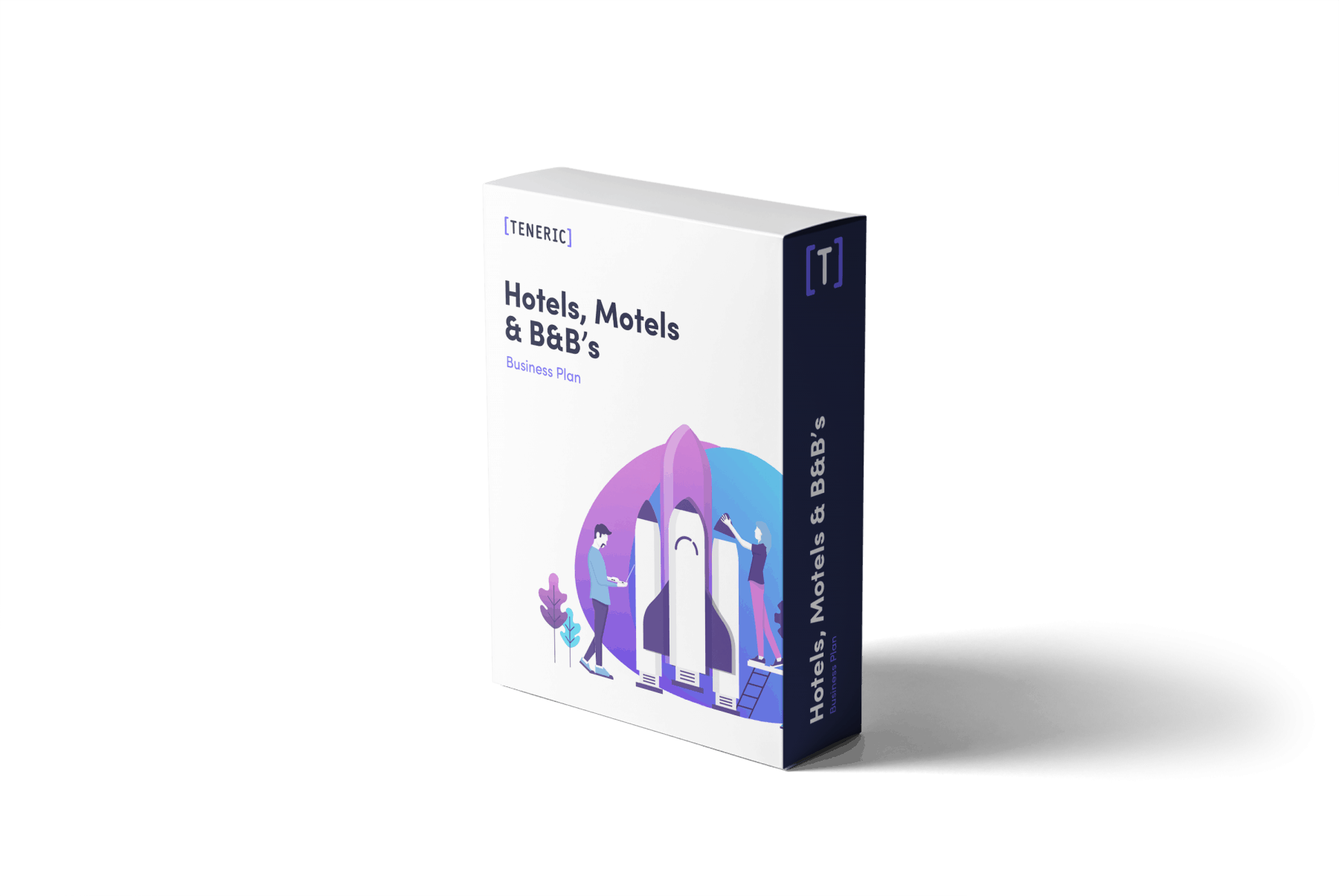Realising your dream to start your very own successful hotel business is an exciting prospect. But with so many people simply adding their properties to Airbnb, now more than ever, you need to stand out from the crowd with a strategic hotel business plan. Since the lifting of COVID-19 restrictions, millions of us are now enjoying travelling and staying in hotels and lodging around the UK.
With 9,741 hotels across the UK as of 2022, it is clear that the hotel dream is alive and thriving and has huge revenue potential. But where do you start?
The first step is to create a new hotel business plan to target the market opportunities in the industry. The plan’s goal is to get the financial support and strategy you need to succeed and this competitive marketplace.
Our guide takes you through various steps, such as understanding the sales and marketing strategy, pricing structure, directorship and management. For new and existing business owners alike, our hotel-based planning system is the ultimate guide to help you achieve your goals.

There is a lot to think about; fortunately, our hotel business plan provides the ideal road map for success.
There is undoubtedly a high potential for substantial growth and revenue in the hotel industry, but competition is high. However, with the industry forecast to bounce back and grow over the next five years, this is an attractive entrepreneurial endeavour.
Firstly, you need to create a thorough new hotel business plan that can be used as a platform to gather your ideas and start collating your resources.
The average start-up costs to open a hotel in the UK vary considerably, depending on a variety of aspects such as location, quality (will your hotel be luxury?) and size.
In addition, other costs such as furnishing the hotel, employing staff and insurance policies all add up.
A hotel business plan offers the perfect way to track and prepare for any financial situation from the beginning of your journey. Effective business planning helps you figure out how to raise capital for your business based on your current financial situation.
A thorough business plan is integral to your proposal if you choose to secure funds from a bank.
In addition to this, you’ll also receive over 25 ways to market your hotel for free!
Let’s dive into an example of a hotel business plan in 8 steps. Then, use this as a guide for your own business plan.
If you intend to secure funds from the bank, a thorough business plan can help you prepare for any eventuality.
Consider writing your executive summary last so that you are confident beforehand with every aspect of your hotel business proposal.
Remember, this is your moment; you want them to be convinced before they’ve even read the full proposal.
This section is where you dive further into information about yourself, your business and your key stakeholders. You now have the perfect opportunity to provide insight into who you are and what you want your hotel to offer.
With every section you create, ask yourself: why would investors consider putting money into my dream hotel?
Show that you are an expert in the hotel industry. Highlight not only your existing knowledge but also your plans for the future.
You want to over deliver and wow potential investors. Be prepared with facts and figures to support every claim.
This task doesn’t need to be overwhelming, as you get all this in our hotel business plan that’s instantly downloadable.
All of the answers are at your fingertips.
Take the time to seriously consider the management and key team players in your hotel. This is the time to show that your endeavour has real potential and is more than just a dream.
Create short bios about these members, including who they are, their roles, and a short section on their previous experience and suitability for the position.
Remember that investors will scrutinise the people in your business, so if possible, avoid relying on family and friends for these vital roles.
Before making any decision, you should understand your competitors and target audience. It would help if you also had a thorough understanding of the hotel industry, both socially and economically.
Not only does this frame you as an expert to potential investors, but it also keeps you ahead of the game in the industry.
Who’s going to visit your hotel?
Get specific about your ideal guest. Explain exactly who they are. You can even create a bio or avatar for this ideal client so that you really get to know them. Give them a name, divulge into their likes and dislikes, their job, their hobbies, even their marital status.
Put yourself into your ideal guest’s shoes and ask if your hotel offers exactly what they need. Are you answering any pain points?
Do they need somewhere family-friendly and within walking distance of the seashore?
Or do they need somewhere quiet and close to easy transport links the night before a big business meeting? Identify the pain points and then solve them.
Prove to potential investors that there is space for your dream hotel, even in this already saturated market.
When it comes to business objectives, you’ll need to think in both the long and short term.
As well as how you intend to achieve them.
This is your opportunity to show that your hotel has real potential for success and growth.
Use the SMART criteria to create your business objectives to improve the chances of them being successful.
Show your potential investors that you have clear aims and that you know exactly how to achieve them.
It’s important to detail exactly how many rooms you intend to have available within your hotel. In addition to this, what amenities each hotel room will have.
This is a good opportunity for potential investors to gauge the size of your new business and roughly how much funding you might require.
There is plenty to consider here and this will depend on your hotel niche. Of course if you have a specific theme or a unique aspect to your hotel, there will be costs attached to this. So include that in this section of your hotel business plan.
Next, consider what other amenities your hotel is going to offer.
In such a saturated market, you need to offer more than just a room for the night. What is unique about your hotel that will make guests want to return time and time again?
This is always the most integral part of the hotel business proposal. It is during this section that you lay out your finances for potential investors to assess your financial situation. Be honest, be clear and be concise.
Remember, investors are driven by return on investment (ROI) and avoiding risk.
In addition to this, you will also want to outline some cost estimations. This will, of course, depend on what you are offering. But nevertheless, be thorough in this section to show that you have covered all bases.
Be sure to be as in-depth and thorough as you can be at this time. Remember that your financial forecast can change, and perhaps other opportunities will arise that will provide more than one source of income.
Don’t let this section intimidate you. Be as accurate as you can be, and clearly show your data supported by your research and experiences.
Download our hotel business plan below for instant access to your roadmap for success and guidance through these financial sections.
Now that you have outlined your hotel business proposal, the final step is to show your potential investors where your initial start-up capital is coming from.
Are you funding your hotel with your own cash? Or do you have investment from another source? Your potential investors will need to know exactly how much start-up capital you have and where it comes from. They will also need to know how much you still need to raise.
It is really important to be completely honest within your hotel business plan, particularly in this section. If potential investors find any red flags they are unlikely to give your application a second thought.
Be clear about where your start-up capital is coming from, how much you need to borrow to get started, and if you’ve been rejected from any other previous applications in the past.
We’ve created a completely free Word document template with an example hotel business plan for you to use for guidance.
Starting your own business can be an exciting but daunting endeavour. The hotel industry has faced more struggles than most others during the pandemic.
However, the light has started to shine on this industry again, and it has been forecast to grow over the upcoming five years. With this in mind, now is the perfect time to embark on your hotel journey.
Whether you are looking for an initial small hotel business plan, or if you intend to expand and grow into an international hotel chain, it all begins with this very first hotel business proposal.

Full hotel business plan package with immediate online access
£29.95
Instant Online Download